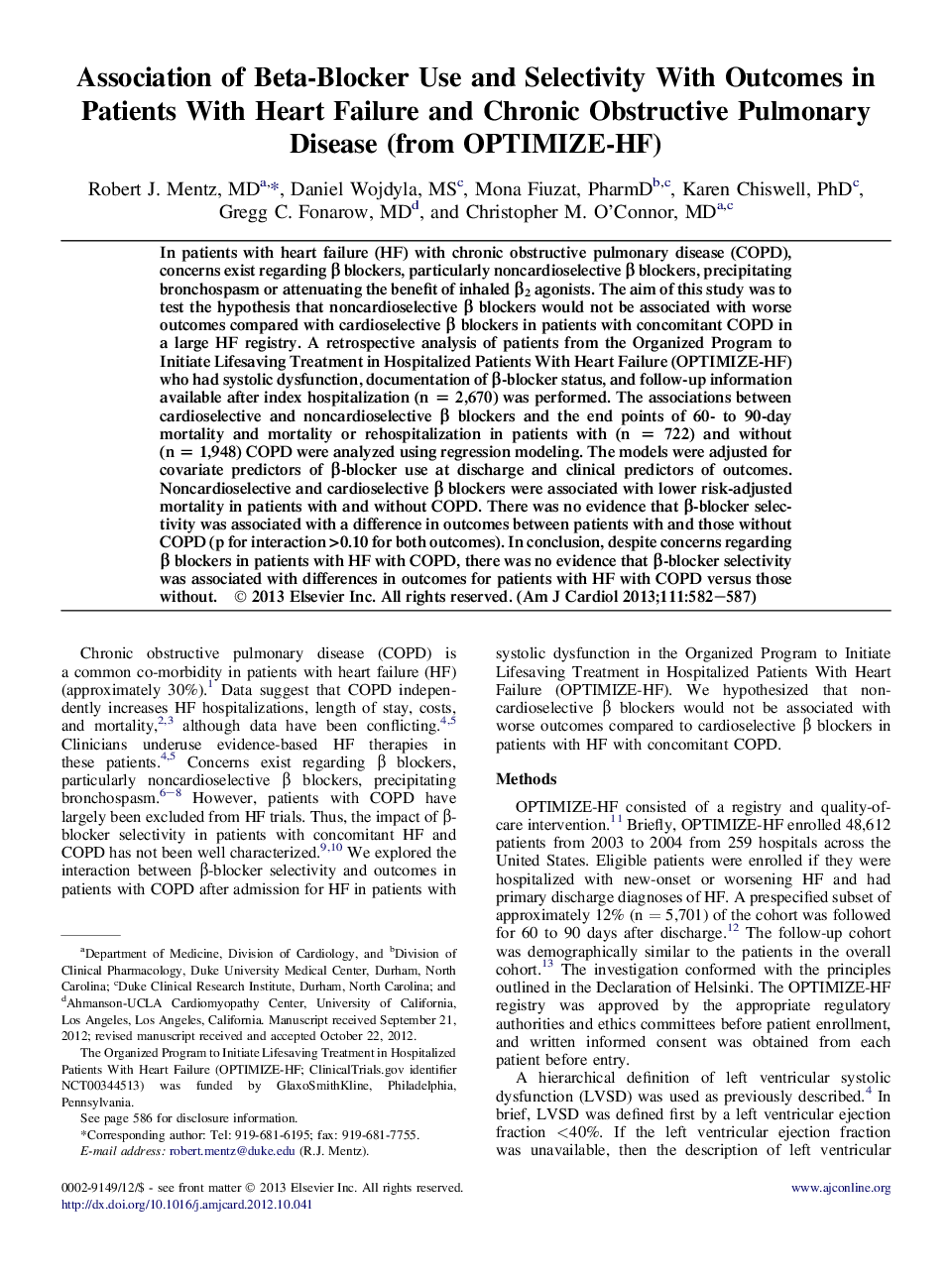| Article ID | Journal | Published Year | Pages | File Type |
|---|---|---|---|---|
| 5931206 | The American Journal of Cardiology | 2013 | 6 Pages |
Abstract
In patients with heart failure (HF) with chronic obstructive pulmonary disease (COPD), concerns exist regarding β blockers, particularly noncardioselective β blockers, precipitating bronchospasm or attenuating the benefit of inhaled β2 agonists. The aim of this study was to test the hypothesis that noncardioselective β blockers would not be associated with worse outcomes compared with cardioselective β blockers in patients with concomitant COPD in a large HF registry. A retrospective analysis of patients from the Organized Program to Initiate Lifesaving Treatment in Hospitalized Patients With Heart Failure (OPTIMIZE-HF) who had systolic dysfunction, documentation of β-blocker status, and follow-up information available after index hospitalization (n = 2,670) was performed. The associations between cardioselective and noncardioselective β blockers and the end points of 60- to 90-day mortality and mortality or rehospitalization in patients with (n = 722) and without (n = 1,948) COPD were analyzed using regression modeling. The models were adjusted for covariate predictors of β-blocker use at discharge and clinical predictors of outcomes. Noncardioselective and cardioselective β blockers were associated with lower risk-adjusted mortality in patients with and without COPD. There was no evidence that β-blocker selectivity was associated with a difference in outcomes between patients with and those without COPD (p for interaction >0.10 for both outcomes). In conclusion, despite concerns regarding β blockers in patients with HF with COPD, there was no evidence that β-blocker selectivity was associated with differences in outcomes for patients with HF with COPD versus those without.
Related Topics
Health Sciences
Medicine and Dentistry
Cardiology and Cardiovascular Medicine
Authors
Robert J. MD, Daniel MS, Mona PharmD, Karen PhD, Gregg C. MD, Christopher M. MD,
